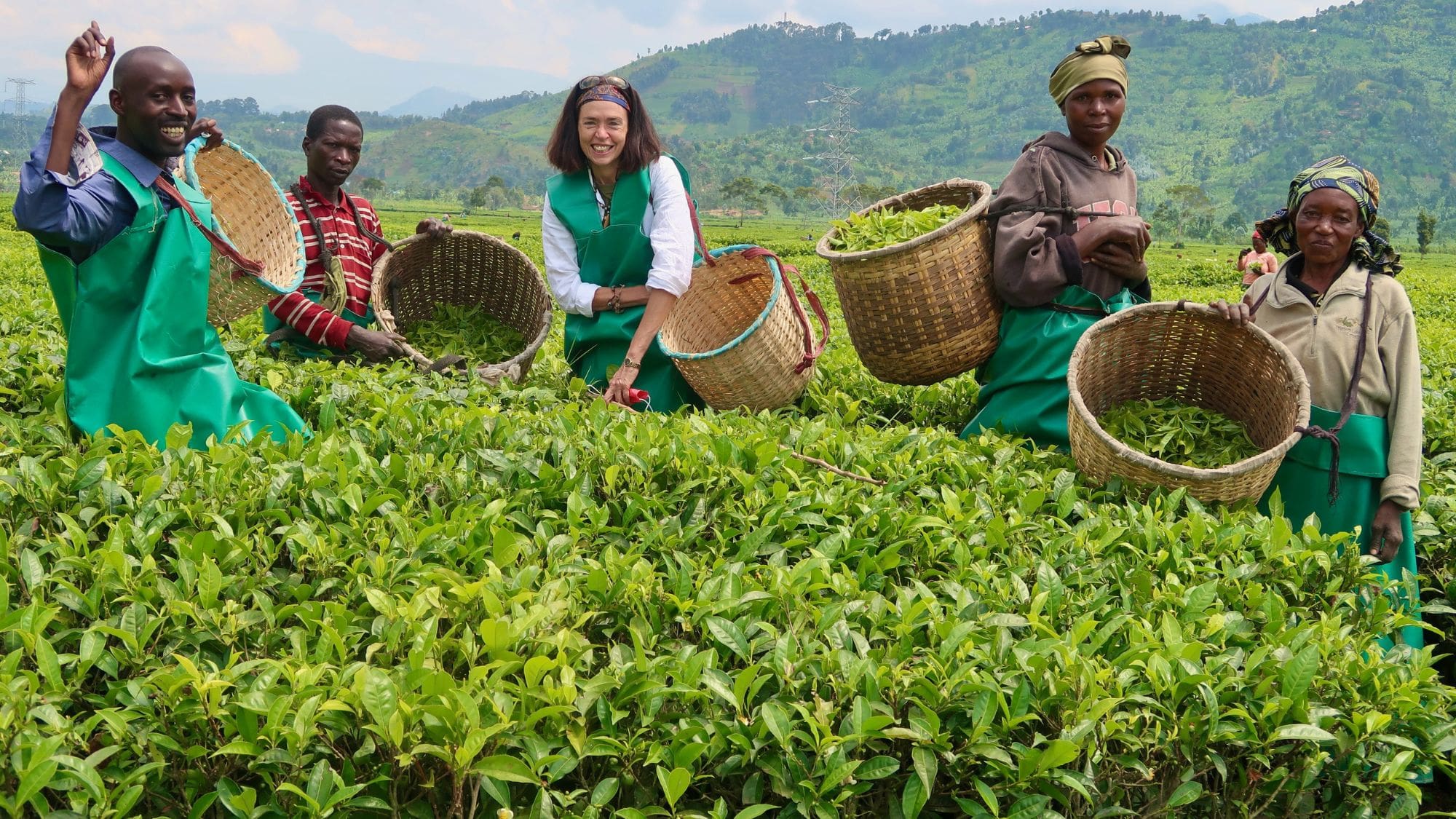"The Rise of Agritourism in East Africa: Bridging Cultures Through Sustainable Farming and Local Experiences"

The Rise of Agritourism in East Africa: Bridging Cultures Through Sustainable Farming and Local Experiences
As global travelers seek more authentic, immersive, and sustainable experiences, agritourism is emerging as one of the most dynamic and innovative segments of the travel industry. Particularly in East Africa, where agriculture is not only a critical part of the economy but also deeply woven into the cultural fabric, agritourism offers a unique opportunity to connect visitors with local communities, sustainable farming practices, and a way of life that has been passed down through generations.
This burgeoning travel trend invites tourists to experience the rhythms of rural life, learn traditional farming methods, and even participate in day-to-day activities on local farms. From coffee tours in Uganda to spice plantations in Zanzibar, agritourism is providing travelers with experiences that go beyond sightseeing, offering meaningful engagement with local culture and sustainable practices. Here’s a closer look at how agritourism is taking root in East Africa and why it should be on every travel enthusiast’s itinerary.
What is Agritourism?
Agritourism is a form of travel that involves visiting rural or agricultural areas to experience firsthand the agricultural lifestyle and farming practices of that region. Activities can range from visiting working farms and wineries to attending food festivals, picking fresh produce, or even staying on a farm. For many travelers, agritourism provides an opportunity to slow down, connect with nature, and gain insights into sustainable farming and food production.
In East Africa, agritourism is a way to explore the continent’s agricultural diversity, as well as its rich culinary traditions. It is a travel experience that fosters learning, discovery, and respect for the land, making it especially attractive to eco-conscious travelers.
Why East Africa is a Prime Destination for Agritourism
East Africa’s agricultural diversity and cultural heritage make it an ideal location for agritourism. The region is known for its rich soils, diverse ecosystems, and a wide array of crops, from coffee and tea to tropical fruits and spices. Here are a few reasons why East Africa is a unique agritourism destination:
- Diverse Agricultural Offerings: Each country in East Africa has its own specialty crops and unique farming traditions. Uganda is famous for its coffee plantations, Kenya for its tea fields, and Tanzania for its spice farms in Zanzibar. This variety allows tourists to experience a range of agricultural practices and local flavors.
- Cultural Immersion: East Africa’s agricultural traditions are deeply tied to its cultural heritage. Agritourism offers visitors a glimpse into the lives of local farmers and communities, fostering cross-cultural understanding and appreciation. Travelers can learn traditional farming techniques, try their hand at harvesting, and even cook traditional dishes made from fresh, local ingredients.
- Support for Sustainable Tourism: Agritourism in East Africa encourages responsible and sustainable travel. By participating in agritourism activities, tourists contribute directly to the local economy and help support sustainable farming practices. This benefits small-scale farmers and promotes environmental conservation.
Unique Agritourism Experiences in East Africa
For those looking to dive into East Africa’s agritourism scene, here are some must-visit destinations and experiences:
1. Coffee Tours in Uganda
Uganda is one of Africa’s largest coffee producers, known for its rich Arabica beans grown on the slopes of Mount Elgon and Rwenzori Mountains. Many small farms across Uganda offer coffee tours, where visitors can see the entire process from bean to cup. Travelers can participate in coffee picking, pulping, drying, and roasting, while learning about the cultural significance of coffee to Ugandan communities. A sip of freshly brewed coffee at the end of the tour offers a taste of Uganda’s finest flavors.
2. Tea Plantations in Kenya
Kenya is one of the world’s leading tea producers, with vast plantations in the highlands around Kericho and Nandi Hills. A visit to these tea estates provides insight into the meticulous processes involved in tea cultivation, from plucking to processing. Many tea plantations offer guided tours and tastings, where visitors can enjoy panoramic views of lush green hills while savoring a freshly brewed cup of Kenyan tea.
3. Spice Plantations in Zanzibar
Known as the “Spice Island,” Zanzibar is famous for its cloves, cinnamon, nutmeg, and other spices. Tourists can visit spice farms and participate in sensory tours that showcase the island’s aromatic treasures. Visitors learn about the medicinal and culinary uses of various spices, taste exotic fruits, and even buy fresh spices to bring a piece of Zanzibar back home. These tours are a fantastic way to understand Zanzibar’s role in the historical spice trade and its influence on Swahili cuisine.
4. Banana Beer Experiences in Rwanda
In Rwanda, bananas are not just a staple crop but a cultural symbol. The country is known for its banana beer, a traditional beverage made by fermenting bananas with sorghum. Visitors can participate in the banana beer-making process, from peeling and mashing bananas to fermentation. This unique experience offers a taste of Rwandan culture and an opportunity to learn about the significance of bananas in local traditions.
The Benefits of Agritourism for Local Communities
Agritourism is more than just an experience for travelers; it’s a way to foster economic growth and social development in rural areas. When tourists spend money on agritourism activities, they contribute directly to the incomes of local farmers and artisans. This financial support enables communities to invest in sustainable farming practices, preserve traditional knowledge, and improve their quality of life.
Furthermore, agritourism promotes environmental sustainability by encouraging organic farming, reducing food miles, and supporting biodiversity. In regions where land and water resources are precious, sustainable agritourism can be an effective way to balance tourism growth with environmental preservation.
How Tio Tours and Travel is Embracing Agritourism
At Tio Tours and Travel, we recognize the importance of sustainable and immersive travel experiences. Our agritourism packages are designed to offer authentic, hands-on experiences that showcase East Africa’s agricultural diversity while respecting local cultures and ecosystems. Whether you're a coffee aficionado, a culinary enthusiast, or simply curious about rural life, our agritourism tours allow you to explore East Africa’s rich landscapes and traditions in a way that’s both educational and meaningful.
Final Thoughts
Agritourism offers a unique and enriching way to explore East Africa, bridging the gap between travelers and local communities while promoting sustainable travel practices. By participating in agritourism, travelers can enjoy unforgettable experiences that deepen their connection to the land and people of East Africa. For those looking to make their travels more impactful and memorable, agritourism is the perfect opportunity to discover the authentic heart of East Africa.
At Tio Tours and Travel, we are committed to providing experiences that leave a positive footprint. Join us as we celebrate East Africa’s agricultural heritage and contribute to a sustainable future for the region. Book your agritourism adventure with Tio Tours today!



